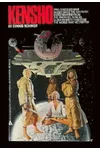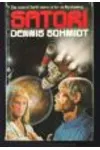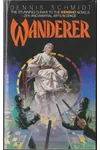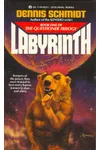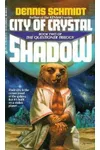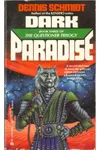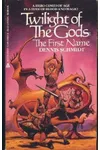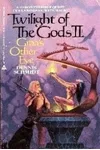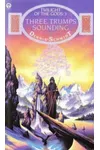Picture an American storyteller who wove Zen philosophy and martial arts into thrilling space operas—meet Dennis Schmidt! This science fiction and fantasy author captivated readers from 1978 to 1990 with his unique blend of Eastern mysticism and speculative worlds. Though his name may not ring as loudly as some genre giants, Schmidt’s novels remain hidden gems for fans of thoughtful, action-packed narratives.
Born in 1939, Schmidt carved a niche in the sci-fi and fantasy landscape with ten novels across three series, each exploring themes of discipline, religion, and mystical enemies. Let’s dive into the life and legacy of this underappreciated master.
The Making of Dennis Schmidt
Little is known about Dennis Schmidt’s early life, but his work suggests a deep fascination with Eastern philosophy and martial arts, likely sparked by the cultural shifts of mid-20th-century America. Emerging during the late 1970s, a time when science fiction was embracing diverse influences, Schmidt began his career with a short story, 'Seeker of the Way,' published in Galaxy in 1976. This tale set the stage for his debut novel, marking his entry into the genre with a distinctive voice that blended Zen introspection with interstellar adventure.
Schmidt’s background remains elusive, adding a layer of intrigue to his legacy. His focus on discipline and mysticism hints at personal interests in martial arts or spiritual practices, which he channeled into his writing, creating worlds that felt both alien and profoundly human.
Dennis Schmidt’s Unforgettable Stories
Schmidt’s bibliography shines through his three series: 'Kensho,' 'Twilight of the Gods,' and 'The Questioner.' His debut series, 'Kensho,' launched with 'Way-Farer' (1978), a space opera following Jerome, a warrior battling invisible creatures called Mushin on the planet Kensho. The series, including 'Kensho' (1979), 'Satori' (1981), and 'Wanderer' (1985), masterfully blends martial arts with Zen philosophy, offering readers thrilling yet introspective adventures.
The 'Twilight of the Gods' trilogy, starting with 'The First Name' (1985), shifts to fantasy, weaving Norse-inspired mythology into intricate narratives. Titles like 'Groa’s Other Eye' (1986) and 'Three Trumps Sounding' (1988) showcase Schmidt’s knack for crafting complex worlds with rich cultural tapestries. His final series, 'The Questioner,' began with 'Labyrinth' (1989) and concluded with 'Dark Paradise' (1990). This trilogy explores a peacekeeping force in intergalactic space, notable for its xenofiction approach, featuring no human characters and delving into alien perspectives.
Schmidt’s style is defined by its fusion of action and philosophy. His protagonists often face mystical enemies, grappling with questions of self-discipline and enlightenment. This unique blend sets his work apart, appealing to readers who crave both pulse-pounding plots and deeper existential musings.
Why Dennis Schmidt Matters
Dennis Schmidt’s impact lies in his ability to bridge cultural and philosophical divides within speculative fiction. By integrating Zen and martial arts into space opera and fantasy, he offered a fresh perspective during a time when the genre was dominated by more conventional narratives. His 'Kensho' series, in particular, remains a standout for its innovative fusion of Eastern and Western storytelling traditions.
Though Schmidt ceased publishing after 1990, possibly due to personal commitments, his novels continue to resonate with niche audiences. Fans on platforms like Goodreads praise his work for its timeless blend of action and introspection, and his books remain sought-after by collectors of vintage sci-fi and fantasy. Schmidt’s legacy endures as a reminder of the genre’s potential to explore profound ideas through imaginative lenses.
- Born: 1939
- Active Years: 1978–1990
- Key Works: 'Way-Farer,' 'The First Name,' 'Labyrinth'
- Genres: Science Fiction, Fantasy
Ready to explore a universe where Zen meets space opera? Snag 'Way-Farer' and dive into Dennis Schmidt’s captivating world of mysticism and adventure!

